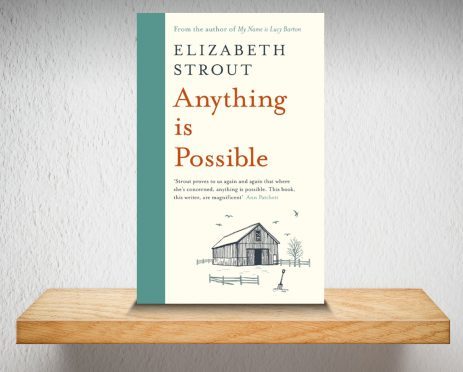You don’t necessarily need to have read Pulitzer Prize-winning author Elizabeth Strout’s 2016 novel, My Name Is Lucy Barton, but to skip it would be to deprive yourself of a dazzlingly moving and beautifully succinct story, that’s also the gateway to her latest work, Anything Is Possible.
In Anything Is Possible, Strout carves out a collection of intensely spare and arresting short stories that revolve around the characters who populated the fringes of Lucy Barton’s fractured, fearful childhood in soybean-field choked Amgash, Illinois.
It echoes the fluid structural feel and exploration of small-town identity you find in Sherwood Anderson’s Winesburg, Ohio. There’s the elderly gentleman who becomes emotionally and financially entangled with a prostitute; the landlady whose kindness towards a guest leaves her exposed; the high school guidance counsellor bullied by her students; and Lucy Barton herself, who, after almost two decades, returns home to visit her brother and sister.
But that reduces these stories to one-liners, which they are not. Every chapter smacks you with the amount of depth, nuance and subtlety packed into them, from the pared-back dialogue, to the restrained descriptions and luminous characterisation.
You will feel guilt, fear, pain, love, longing and despair as though through osmosis. It’s a wonder of a book.
